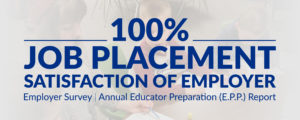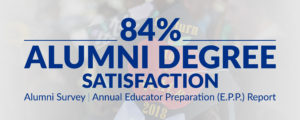

Become the Educator Your Students Need You To Be
Preparing to be a future educator is one of the most fulfilling opportunities you can experience. When you see that ‘spark’ and a child suddenly understands something for the first time, it captivates you and makes you want to strive for more of those ‘sparks’! When you join us and study education at Central, you will be prepared with strategies and skills necessary to help students find their ‘spark’ and in the end, you will find yours too!
“Keep hold of instruction; do not let go; guard her, for she is your life.” – Proverbs 4:13
Become the Educator Your Students Need You To Be
Preparing to be a future educator is one of the most fulfilling opportunities you can experience. When you see that ‘spark’ and a child suddenly understands something for the first time, it captivates you and makes you want to strive for more of those ‘sparks’! When you join us and study education at Central, you will be prepared with strategies and skills necessary to help students find their ‘spark’ and in the end, you will find yours too!
“Keep hold of instruction; do not let go; guard her, for she is your life.” – Proverbs 4:13
Become the Educator Your Students Need You To Be
Preparing to be a future educator is one of the most fulfilling opportunities you can experience. When you see that ‘spark’ and a child suddenly understands something for the first time, it captivates you and makes you want to strive for more of those ‘sparks’! When you join us and study education at Central, you will be prepared with strategies and skills necessary to help students find their ‘spark’ and in the end, you will find yours too!
“Keep hold of instruction; do not let go; guard her, for she is your life.” – Proverbs 4:13
Education Department
- Application
- High School Completion or GED
- High School GPA 2.5
- 18 ACT Score
- The Education Department has three bachelors programs.
- Classes are on campus
- The time it takes to complete the program is dependent on the number of transfer credits awarded upon enrollment.
- To view the full program overview click here: Program Overview 2020
- The student-teacher demonstrates familiarity with developmental science and learning theories, adapting learning strategies in response to the cognitive, linguistic, cultural, emotional, spiritual, and physical abilities of students.
- The student-teacher demonstrates subject knowledge and promote appropriate levels of literacy with students.
- The student-teacher employs assessment resources to analyze student learning, using results to improve student and professional practice?
- The student-teacher demonstrates familiarity with intervention and organizational strategies that allow for the efficient management of time, resources, and behavior.
- The student teacher demonstrates familiarity with developmental science and learning theories, adapting learning strategies in response to the cognitive, linguistic, cultural, emotional, spiritual, and physical abilities of students.
- The student teacher demonstrate subject knowledge and promotes appropriate levels of literacy with students.
- The student teacher employs assessment resources to analyze student learning, using results to improve student and professional practice.
- The student teacher demonstrate familiarity with intervention and organizational strategies that allow for the efficient management of time, resources, and behavior.
- The student teacher deliver instruction that reflects reliance on academic standards, assessment data, and a scaffolding approach to learning.
- The student teacher identify, acquire, and utilize effective learning resources and assets (technologies) to maximize learning and student engagement.
- The student teacher communicate effectively, utilizing multiple mediums and modes, ensuring a clear understanding of objectives, expectations, and feedback.
- The student teacher present lessons that promote critical thinking and challenge students to consider the inter connectivity and diversity of knowledge, skills, and abilities.
- The student teacher participates in collaborative leadership initiatives and assessment activities that strengthen student performance and professional practice.
- The student teacher advocates for students, collaborating with colleagues, families, and communities, to promote learner growth and development.
- The student teacher exhibits Christian character through the ethical and professional execution of their office.
- The student teacher contributes to the enhancement of learning, employing technology, relationships, research, and resources to ensure equitable and effective access to all.
- Foundational: 10 Credit Hours
- Liberal Arts: 34 Credit Hours
- Education Core: 37 Credit Hours
- Major Core: 26 Credits
- Elementary Education
- Secondary Education- Math
- Physical Education
All education programs are accredited by the Kansas State Board of Education and the Higher Learning Commission.
- Early Field Experience
- Exceptional and Diverse Leaders
- Philosophy of Education
- Educational Assessments and Statistics
- Instructional Media & Technology
- Children’s & Adolescent Literature
Majors
The goal of the Education Department is to provide a strong academic clinical-based preparation program and to prepare quality educators who are committed to professional excellence and who positively impact P-12 student learning. Elementary Education prepares teachers for pre-school through sixth grade. Students pursing this field often minor in psychology, ministry, or special education and have greater opportunities for employability.
In all programs, we offer the opportunity to have either an urban or international field experience that enhances your ability to teaching from different perspectives while also leaning about the culture you are in. Previous participants have shared that everyone pursuing education should take part in this opportunity!
We also have a partnership with the local school district where our students, after completing sixty hours of observations, can apply to be a college based para educator where they serve special education students. This opportunity allows are students to be in classrooms early in their schooling and at the same time, earn a salary.
The Secondary Education-Math program content follows the recommendations of the Association of Mathematics Teacher Educators, the National Council of Teachers of Mathematics, and the Mathematical Association of America, and meets teacher certification requirements in most states. Teachers of mathematics in both public and private middle and high schools are very much in high demand and thus choosing a career in this field would be beneficial to both yourself and students you will teach.
The Physical Education major certifies a student to teach physical education in primary through twelfth grade. The main reason students choose this major is to teach physical education in the public or private school system. Students who want to coach a particular sport in the school setting are required in many states to be employed in the school system in which they are coaching. The employment combination of teaching and coaching is a common opportunity in education today.


FREQUENTLY ASKED QUESTIONS
How long will it take?
While our program is set up for students to attain their Bachelor in four years, it may take longer depending on how many credits you take each semester.
How do I apply?
For the bachelors programs go to the Bachelors Application for the Residential Program. For the Online Bachelors program go to Online Application.
The first step for masters students is to fill out the request more information form and are admissions team will walk you through the admissions process.
Where do I schedule a campus visit?
To schedule a visit go to Preview.centralchristian.edu or call or text 620-241-0723 to schedule an in person or virtual visit.
Do you offer financial aid?
We do! Our financial aid office can help you get your federal financial aid and loans figured out.
Am I eligible for an education scholarship?
There are several opportunities at Central Christian College to receive scholarships by utilizing your talents in areas such as sports, music or academic achievements.
What secondary degrees are available?
We currently offer two secondary degrees which includes Math, as well as Physical Education, which covers grades K-12.
How do I get into the Teacher Education program?
A majority of the prerequisite paperwork needed to be admitted into the Teacher Education Program will be completed when you take Introduction to Education (ED-CC 100). Prior to admission in our Teacher Education program, courses that need to be completed include General Psychology, Comp 1 and Comp 2, Speech, and College Algebra (NS-MA 101) or a higher level math course, must be passed with a C or higher. The student is also required to maintain a cumulative GPA of 2.75 or higher and pass a C-Base exam, which measures aptitude in general subjects such as English and mathematics. Other prerequisites include documentation of TB testing with a “Negative” result, and compliance with Central Christian Colleges Code of Character and several letters of recommendations along with 75 hours of contact time with students in various capacities.
What clubs/organizations are available to education students?
The Education Department has three organizations available to education students. C.H.U.M.S. is a paid/volunteer organization and the Education Club is our other on-campus organization. Prelude is a collegiate chapter of the National Association for Music Educators (NAFME) and Kansas Music Educators Association (KMEA). The purpose of this Association is to promote the advancement of music education and prepare college students majoring in music education or college students with any interest in teaching music with the proper tools to teach music.
What is the Code of Character?
Our mission at Central Christian College is to provide Christ-Centered Education for Character. The Code of Character articulates the core values that allow the school to pursue its stated mission and works as an acknowledgment from the student to share the values of Central Christian College while attending.
I'm looking to transfer to Central Christian College. What courses will transfer toward my degree?
There are several prerequisite courses that need to be taken in order to be admitted into the Teacher Education program. These include General Psychology, Comp 1 and Comp 2, Speech, and College Algebra (NS-MA 101) or a higher level math course. All of these courses, as well as up to seven credits of electives, should transfer toward your degree as long as the course was passed with a C or higher.
Will AP courses assist me in getting an education degree?
Advanced Placement courses can be used as college credit depending on your exam score. This may help you fulfill the prerequisite courses that are required before being admitted into the Teacher Education program
Can I minor in Education?
Yes, you can minor in education, but it will not lead you to an initial certification for teacher licensure.
How can I become a teacher in another state once I have my Kansas Teaching License?
Once you have completed and passed Student Teaching, Praxis and your Portfolio you can apply for licensure with the Kansas State Department of Education. After you receive your license you can apply for licensure in another state. Each state requirement is unique so you will need to access the Department of Education in the state you desire to teach in. While some classes and programs may allow a student to seek licensure or certification, beyond the scope of the College, the College makes no assertions or guarantees that its courses, programs, or curriculum meet the educational prerequisites for professional licensure or certification.
Bachelor of Arts in Education [Elementary, Physical Education, and Secondary]: This program is designed to meet the requirements of the Kansas State Department of Education, allowing students to seek licensure through the State of Kansas. Graduation from the program does not guarantee licensure. Additional conditions may be required for licensure in other states.
For academic programs that may reasonably be assumed to lead to professional licensure, these disclosures indicate, as of July 2020, the states where the institution has determined through reasonable, good faith effort that such programs:
1. Do meet the applicable professional licensure education requirements;
2. Do not meet the applicable professional licensure education requirements; or
3. Have not been able to be identified as meeting the applicable professional licensure education requirements.
Each state has its own licensure requirements, so it is best to contact the relevant state department of education prior to beginning your program. Each state’s appropriate office has been linked in the chart below.
Teacher License Reciprocity – State Profiles: The following link provides information for candidates who hold out-of-state license to earn a license in a receiving sate and meet needed state requirements.
Education Commission of the States
Kansas Teachers Reciprocity Agreements: Kansas’s ability for out-of-state teachers to earn a Kansas teaching certification. To see a full list of NASDTEC Interstate Agreement state members, visit the following link.
Kansas Teacher Reciprocity
The National Association of State Directors of Teacher Education and Certification (NASDTEC) Interstate Agreement facilitates the mobility of educators among the states and other jurisdictions that are members of NASDTEC and have signed the Agreement. For more information on the NASDTEC Interstate Agreement, visit the NASDTEC website.
https://www.nasdtec.net/
Do you provide the Annual Outcomes?
Yes, you can find the view the Annual Outcomes for the Education Department here.
FACULTY
Steven Smith
Chair of the Human Services Departmentsteven.smith@centralchristian.edu
Kevin Barrows
Education Professorkevin.barrows@centralchristian.edu





